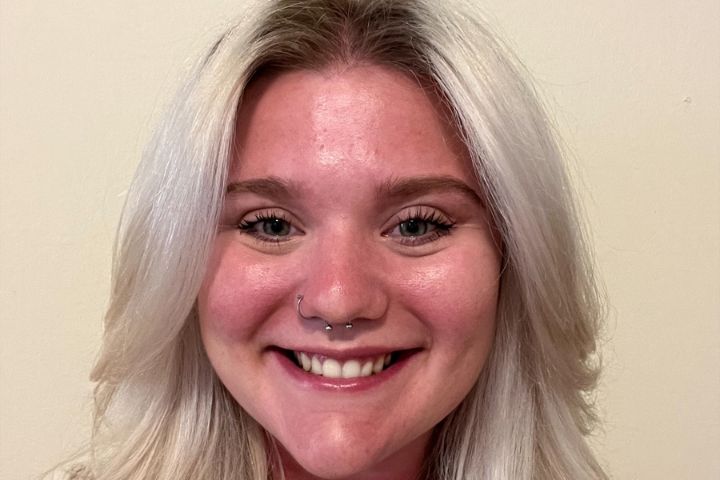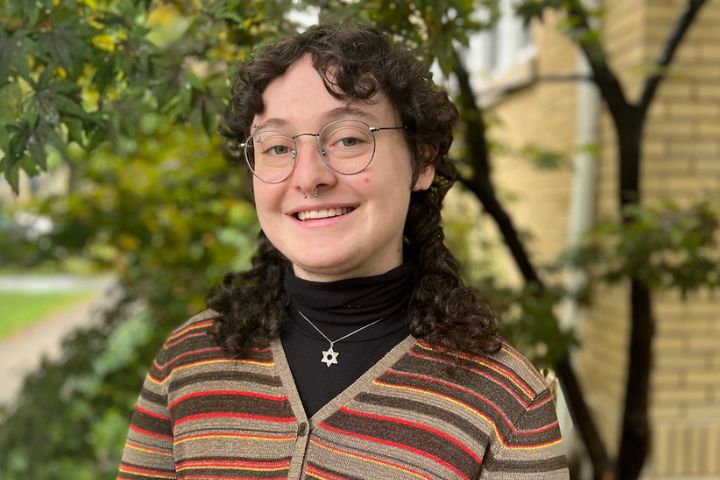This summer offered exciting research opportunities for recipients of the Dean's Undergraduate Fellowship. The 10-week internship program allows College of Science and Health students to conduct research one-on-one with principal investigators at a range of world-class Chicago institutions. This paid fellowship program places students at a variety of sites from Rush University Medical Center to Argonne National Laboratory, allowing fellows to pursue interdisciplinary work while gaining both professional and research skills. Previous recipients offer praise and enthusiasm for the program, citing eye-opening encounters with applied science and healthcare.
 Imani Barnes (Health Sciences) used this unique opportunity to study the prevalence of menthol cigarette smoking in Chicago communities in partnership with the Chicago Department of Public Health last year. Using data from their Healthy Chicago Survey, Barnes conducted analyses to identify key smoking trends. “I chose to examine menthol cigarette use by analyzing social determinants of health such as race/ethnicity, poverty, and gender to determine if these social factors play a role in the kind of cigarettes Chicagoans are smoking. From my findings, I concluded that Black, Latinx, and low-income individuals are the most likely to smoke menthol cigarettes" Barnes explains. Barnes hopes to use the research findings to support interventions targeting vulnerable populations and contribute to a large-scale national ban on menthol cigarettes.
Imani Barnes (Health Sciences) used this unique opportunity to study the prevalence of menthol cigarette smoking in Chicago communities in partnership with the Chicago Department of Public Health last year. Using data from their Healthy Chicago Survey, Barnes conducted analyses to identify key smoking trends. “I chose to examine menthol cigarette use by analyzing social determinants of health such as race/ethnicity, poverty, and gender to determine if these social factors play a role in the kind of cigarettes Chicagoans are smoking. From my findings, I concluded that Black, Latinx, and low-income individuals are the most likely to smoke menthol cigarettes" Barnes explains. Barnes hopes to use the research findings to support interventions targeting vulnerable populations and contribute to a large-scale national ban on menthol cigarettes.
 Healthcare was also top of the research agenda for Emma Ockuly (Psychology). Through work at the Autism, Assessment, Research, Treatment, and Services (AARTS) Center at Rush University Medical Center, Ockuly was able to participate in two groundbreaking studies on autism and syndromic intellectual and developmental disability (sIDD) treatment. One of these studies focused on mapping the genotype, phenotype, and natural history of Phelan-McDermid Syndrome (PMS), a rare genetic disorder with core symptoms and potential gene linked association with autism that could have implications for long-term intervention and care. By gathering and identifying trends in the data, Ockuly made an important contribution to the research. “Because of the data I entered as well as the data I was auditing, I was able to understand a lot of the language being used in the study. It was incredible to see this study published because now the researchers are able to begin their first medication trial" Ockuly shares.
Healthcare was also top of the research agenda for Emma Ockuly (Psychology). Through work at the Autism, Assessment, Research, Treatment, and Services (AARTS) Center at Rush University Medical Center, Ockuly was able to participate in two groundbreaking studies on autism and syndromic intellectual and developmental disability (sIDD) treatment. One of these studies focused on mapping the genotype, phenotype, and natural history of Phelan-McDermid Syndrome (PMS), a rare genetic disorder with core symptoms and potential gene linked association with autism that could have implications for long-term intervention and care. By gathering and identifying trends in the data, Ockuly made an important contribution to the research. “Because of the data I entered as well as the data I was auditing, I was able to understand a lot of the language being used in the study. It was incredible to see this study published because now the researchers are able to begin their first medication trial" Ockuly shares.
 Owen Howard (Biology) chose a different path. Working with the Lincoln Park Zoo's Animal Welfare Science Program, Howard undertook an analysis of more than 1,000 individual animal welfare assessments to identify trends and evaluate the effectiveness of the tool's measurements. Howard's research led to a 42-page report and presentation for the board of animal care staff and managers at the zoo. Part of Howard's project included developing codes to organize Excel data for future inquiry. “In the future, I see myself continuing with research and developing my statistical analysis skills…Research interests me because I enjoy devoting myself to a question (or number of questions) that will strengthen my understanding of biology and the world around me" says Howard. The research has since been utilized for an article published in Applied Animal Behavior Science for which Howard was acknowledged.
Owen Howard (Biology) chose a different path. Working with the Lincoln Park Zoo's Animal Welfare Science Program, Howard undertook an analysis of more than 1,000 individual animal welfare assessments to identify trends and evaluate the effectiveness of the tool's measurements. Howard's research led to a 42-page report and presentation for the board of animal care staff and managers at the zoo. Part of Howard's project included developing codes to organize Excel data for future inquiry. “In the future, I see myself continuing with research and developing my statistical analysis skills…Research interests me because I enjoy devoting myself to a question (or number of questions) that will strengthen my understanding of biology and the world around me" says Howard. The research has since been utilized for an article published in Applied Animal Behavior Science for which Howard was acknowledged.
The Office of Advising and Student Services accepts applications for the program every Winter (deadline February 15). Interested students majoring in College of Science and Health programs can view more information about the program here.